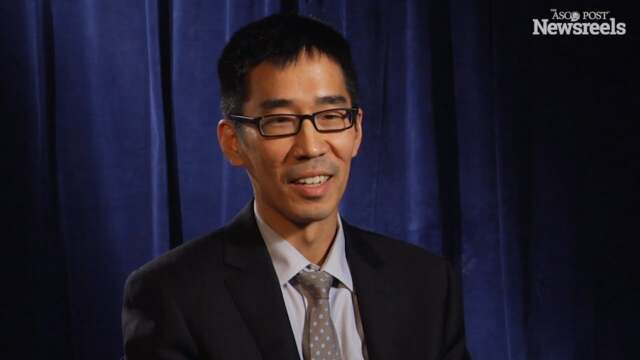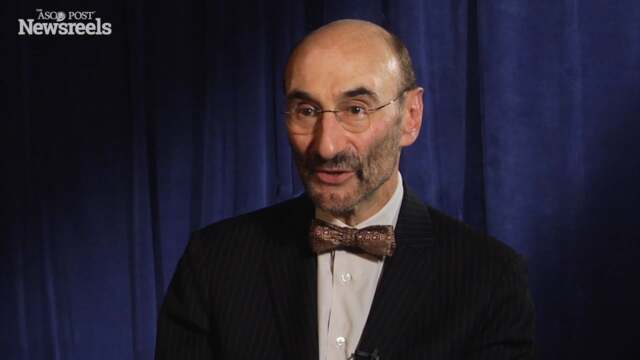Supriya Chopra, MD, on Reducing Late Bowel Toxicity in Cervical Cancer
2015 ASTRO Annual Meeting
Supriya Chopra, MD, of Tata Memorial Hospital, discusses results of the PARCER study, which compared conventional 3D conformal radiotherapy to image-guided intensity-modulated radiotherapy in reducing bowel side effects for women with cervical cancer (Abstract 8).
Bruce Minsky, MD
ASTRO President Bruce Minsky, MD, of MD Anderson Cancer Center, talks about the goals and highlights of this year’s ASTRO Annual Meeting.
Roy Decker, MD, PhD
Roy Decker, MD, PhD, of Yale University School of Medicine, discusses a National Cancer Database analysis that showed elderly patients with limited-stage small cell lung cancer can benefit from adding concurrent radiation to chemotherapy (Abstract 1010).
James B. Yu, MD
James B. Yu, MD, of Yale School of Medicine, summarizes the plenary lecture on results from the NRG Oncology/phase III study comparing two fractionation schedules for low-risk prostate cancer (Abstract LBA6).
Bruce Minsky, MD
Bruce Minsky, MD, of MD Anderson Cancer Center, discusses two important papers: results from a prospective trial on quality-of-life outcomes for low-risk HPV-associated oropharyngeal squamous cell carcinoma, and a prostate cancer radiation therapy study (Abstracts 3, 4).
Reshma Jagsi, MD, DPhil
Reshma Jagsi, MD, DPhil, of the University of Michigan Health System, discusses this multicenter phase 1 study of veliparib given concurrently with chest wall and nodal radiation therapy in patients with inflammatory or locoregionally recurrent breast cancer (Abstract 312).





